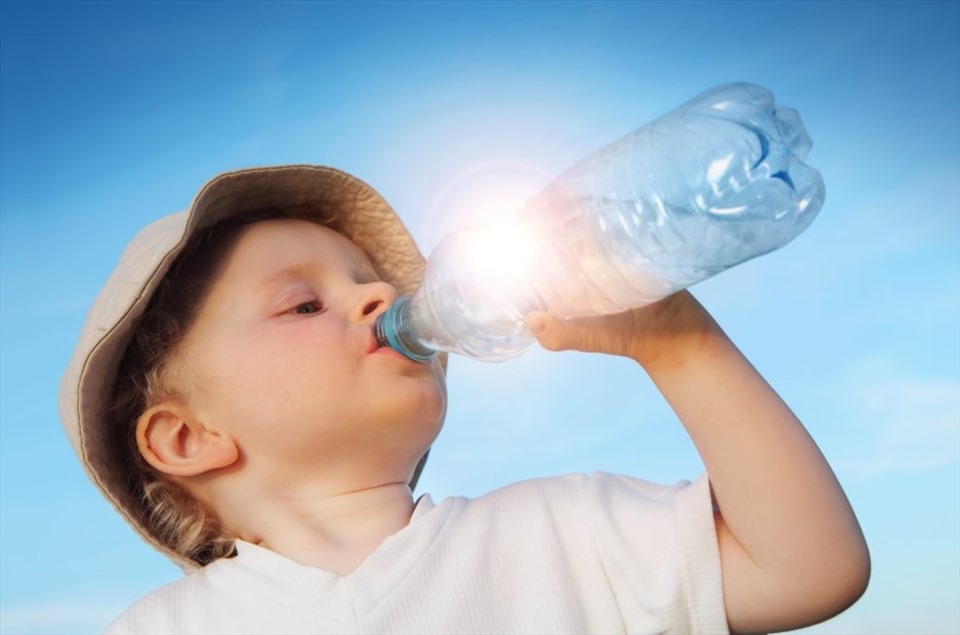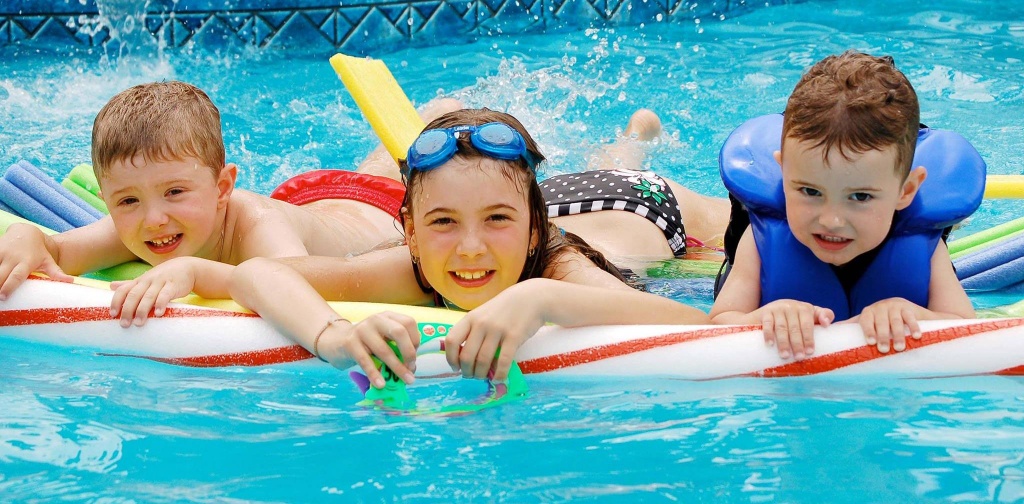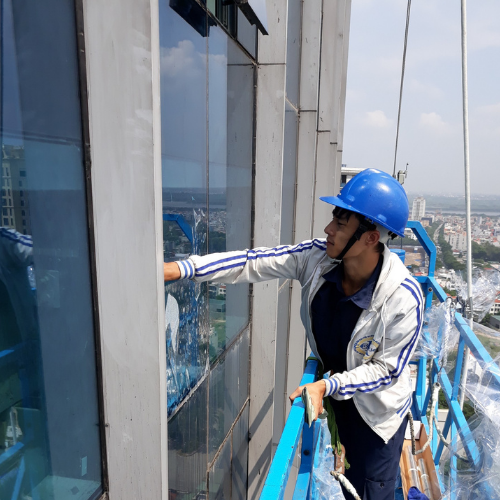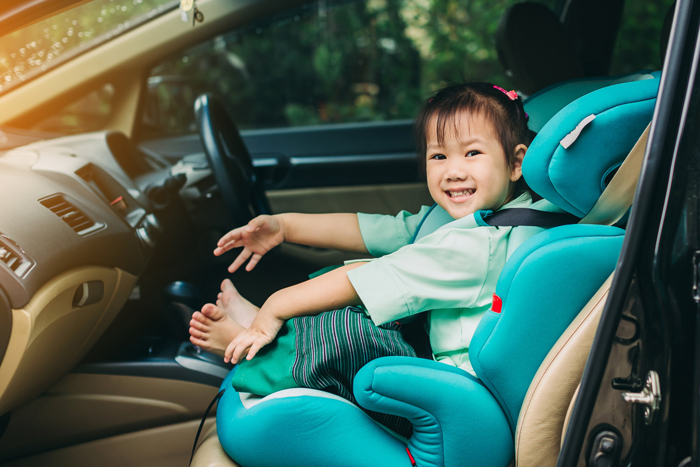Severe heat and how to protect childrens health when the heat increases
Normally, playing outdoors helps improve children's physical and mental health. However, with temperatures exceeding 37 degrees Celsius recently, there are many potential risks to children's health.
Nội dung bài viết
High temperatures and intense heat can make children easily sick and tired. High temperatures on hot summer days can cause dehydration, exhaustion, heat cramps, and heat stroke - all of which require a trip to the emergency room. High heat levels can also cause frustration for both children and parents and teachers.
To protect your child from extreme heat, monitor your child's symptoms and seek advice and help from your pediatrician when needed.
The following tips will help parents cool their children's bodies on hot days and protect their health in the summer, helping them stay healthy and have a meaningful summer.
To protect your child from extreme heat, monitor your child's symptoms and seek advice and help from your pediatrician when needed.
The following tips will help parents cool their children's bodies on hot days and protect their health in the summer, helping them stay healthy and have a meaningful summer.
1. Cool your body on hot days
When the weather is hot, going swimming or going to the beach or staying in a cool room playing with toys and crafts will inspire children the most. Think of more creative ways to help children have fun on hot days. To help your child be more active, encourage them to practice yoga, play hide-and-seek indoors, or do light, fun physical activities.
- If your family does not have air conditioning, find an air-conditioned place near your house to cool your child's body. For example, a supermarket or library can be an ideal place for children to play and cool down on summer days. If you live in an area where power outages are common, find a place where your family can take shelter when the weather gets "crazy hot." For example, some buildings and offices equipped with air conditioning and fan systems can be an ideal place for your whole family to go to avoid the heat, for example.
- At home, if the sunlight is too intense and brings about a hot layer of heat, close the curtains or shutters to cool the house and avoid direct heat. If you live in a private house with 3-4 floors, for example, limit your access to the rooftop because this is the floor that absorbs the most heat. Head downstairs to get cooler.
- When using the fan, keep a safe distance to avoid accidents such as getting your fingers stuck in the fan. Fan wind blowing directly on the face can cause dry mouth and nose. Or if you or your child is prone to allergies, the fan's wind can also blow away allergens that can cause a runny nose or itchy eyes.
- When the temperature is too high above 40 degrees Celsius, you should not use a fan because then the fan will only blow hot air onto your body and will no longer cool your body.
2. Five tips to help "beat away" the summer heat and prevent heat shock for children
If your family plans to go out in the "blazing hot" weather, there are some ways to help you "beat the heat" and protect your children from health risks caused by the heat as follows:
2.1 Drink enough water

Remind your child to drink water regularly and always carry water with you. Remind your child to drink water even before he feels thirsty. Always bring a water bottle when going out.
For newborns, on hot days, babies who are breastfed in a bottle should be fed more breast milk to increase their resistance. But babies under 6 months old should not drink water from a feeding bottle to avoid choking. Children who drink formula milk should also be given extra milk in the summer.
For newborns, on hot days, babies who are breastfed in a bottle should be fed more breast milk to increase their resistance. But babies under 6 months old should not drink water from a feeding bottle to avoid choking. Children who drink formula milk should also be given extra milk in the summer.
2.2 Wear loose, cool clothes
On hot summer days, children should wear light-colored, light, airy, and sweat-absorbent clothes. Have children use sunscreen to avoid skin damage.2.3 Cool the body

When your child feels hot, give him or her a cool bath or spray mineral water on his face to cool him down. Swimming is also a way to help your baby exercise while also cooling the body. However, it is necessary to ensure the safety of children and ensure that someone is always supervising them to prevent drowning.
2.4. Never leave children unattended in the car
The temperature inside your car can increase very high in just a short period of time when you turn off the engine and the car's air conditioning is turned off, even with the car windows open. Therefore, anyone left in the car is susceptible to heat stroke.
2.5. Apply heat-insulating and heat-resistant films to cars and greenhouses
To help stabilize the temperature, avoid large differences and avoid heat shock in the summer, besides keeping body temperature and cooling the body, many families are interested in cooling homes and cars. . Especially right now is the peak time of heat, with outdoor temperatures reaching over 40 degrees Celsius.
And the simplest heat-insulating measure for vehicles and residential glass that many people learn about and choose is to use heat-insulating film.

- Heat-insulating film with the "Heat Reflection and Absorption" mechanism helps block up to 99% of UV rays and an average of 89 - 99% of IR (infrared) rays.
- Helps protect the health of people sitting inside, especially children with sensitive skin.
- Heat-insulating film helps cool the space effectively, reducing the inside temperature by 4-7 degrees Celsius compared to the outside. Helps increase the operating efficiency of cooling equipment, airy space, and stable temperature.
- Effectively resists heat and thermal shock when entering the house or car from outside.
3. Signs that children need doctor's advice
When children have the following symptoms, parents need to call the doctor for timely advice:- Feeling like fainting
- Extreme fatigue (eg, unusual drowsiness, falling asleep all day, to the point of not being able to get up).
- Headache
- Fever
- Nausea
- Vomit
- Breathing faster or breathing harder than usual
- Skin numbness, rashes, tingling
- Muscle pain
- Muscle spasms



